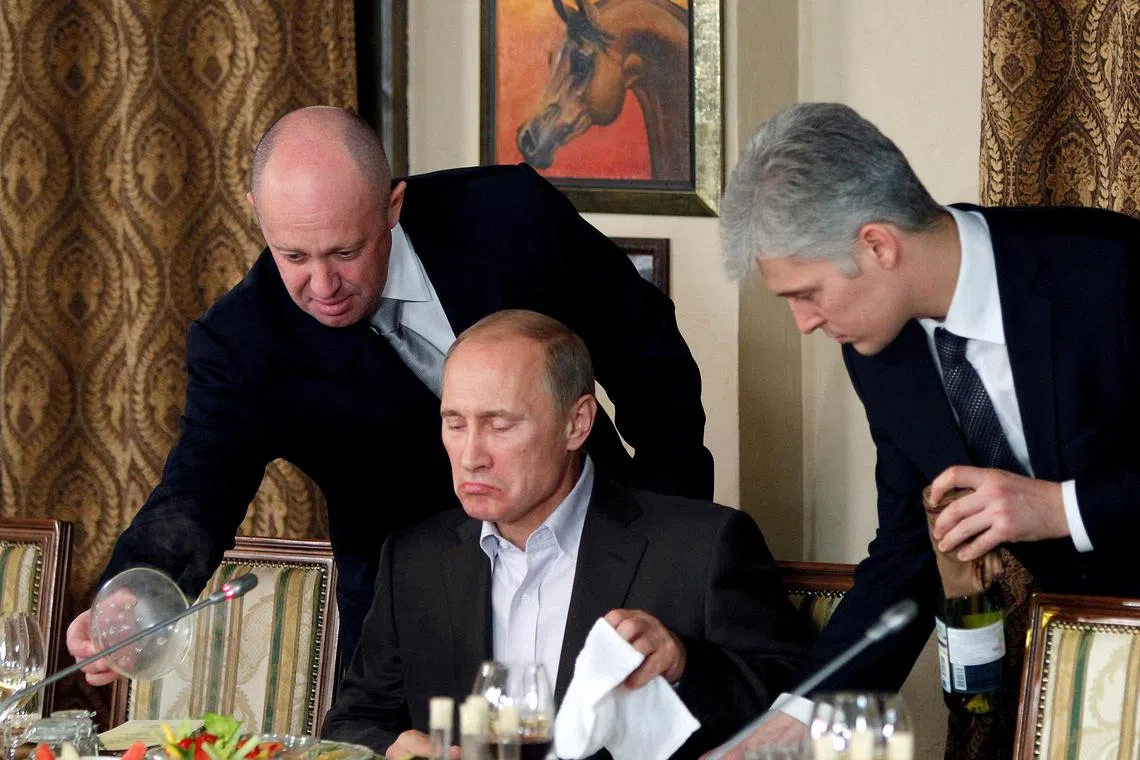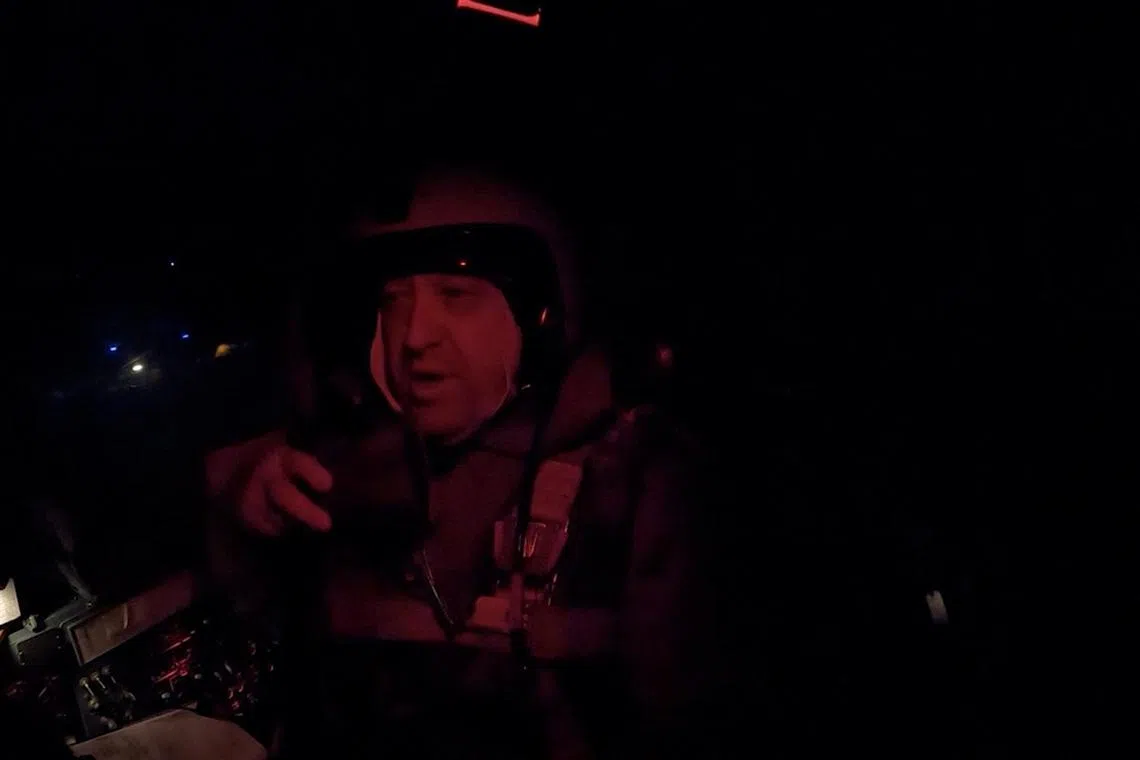Boss of Russia’s Wagner group says Moscow could take 2 years to capture east Ukraine regions
Sign up now: Get ST's newsletters delivered to your inbox

Wagner boss Yevgeny Prigozhin (left) with Russian President Vladimir Putin (centre) in 2011.
PHOTO: REUTERS
Follow topic:
LONDON - The head of Russia’s Wagner mercenary group has said in a rare interview that it could take two years for Moscow to control the whole of two eastern Ukrainian regions whose capture it has stated as a key goal of the war.
Mr Yevgeny Prigozhin said his understanding of Russia’s plan was that it needed to fully control the Donetsk and Luhansk regions that Moscow in 2022 claimed as “republics” of Russia, in a move condemned by most countries of the United Nations as illegal.
“As far as I understand, we need to close off the Donetsk and Luhansk republics and, in principle, that will suit everyone for now,” he told Russian military blogger Semyon Pegov in a video published on Friday.
He said that could take 1½ to two years.
“If we have to get to the Dnipro, then it will take about three years,” added Mr Prigozhin, referring to a larger area that would extend to the vast Dnipro River that runs roughly from north to south, bisecting Ukraine.
The comments provided a rare glimpse into Russian expectations of the likely duration of the conflict, from a man whose private army is at the centre of some of the fiercest fighting.
Mr Prigozhin does not speak for the Russian military but he has sharply raised his public profile in recent months, including by criticising the army leadership for its failures in nearly 12 months of war.
In the interview, however, he insisted he had “zero” political ambitions.
Speaking at times with vulgar language, Mr Prigozhin said Russia needed to capture Bakhmut – a city in Donetsk that has been the scene of brutal warfare for months but faced fierce resistance from Ukrainian defenders.
Asked if Russian forces were close to achieving a full blockade of the city, he said: “It is probably too early to say that we are close.
“There are many roads out and fewer roads in. Ukrainian troops are well-trained... and like any large city, it is impossible to capture it from head-on. We are managing very well.”
Mr Prigozhin refrained from further attacks on Russia’s military leadership, looking straight into the camera to stress he was not criticising anyone.
The United States assesses that Wagner currently has about 50,000 personnel deployed to Ukraine, including 10,000 contractors and 40,000 convicts recruited from Russian prisons.
It has accused the group of committing widespread atrocities and human rights abuses, and designated it in January as a transnational criminal organisation.
He said on Friday that Wagner had stopped recruiting prisoners. In the interview, he denied using them as cannon fodder and said losses among prisoners were about the same in percentage terms as for the rest of his fighters.

An image taken from handout footage released on Feb 6 shows Mr Yevgeny Prigozhin inside the cockpit of a military Su-24 bomber plane over an unidentified location, in the course of the Russia-Ukraine conflict.
PHOTO: REUTERS
Russia said on Saturday it carried out a “massive strike” on critically important energy facilities of Ukraine’s military-industrial complex on Friday.
In a daily update, the Defence Ministry did not identify the energy facilities it claimed to have hit. It said the strike had also blocked the transport of foreign weapons and ammunition by rail to battlegrounds in Ukraine.
Ukraine’s armed forces said late on Friday that Russian forces had fired more than 100 missiles and mounted 12 air and 20 shelling attacks. They said 61 Russian cruise missiles were destroyed.
Ukraine’s Energy Minister German Galushchenko said Russia had hit power facilities in six regions with missiles and drones, causing blackouts across most of the country.
Russia has repeatedly attacked civilian infrastructure far from the front line, leaving millions of Ukrainians without power, heat or water for days at a time in the middle of winter.
REUTERS

